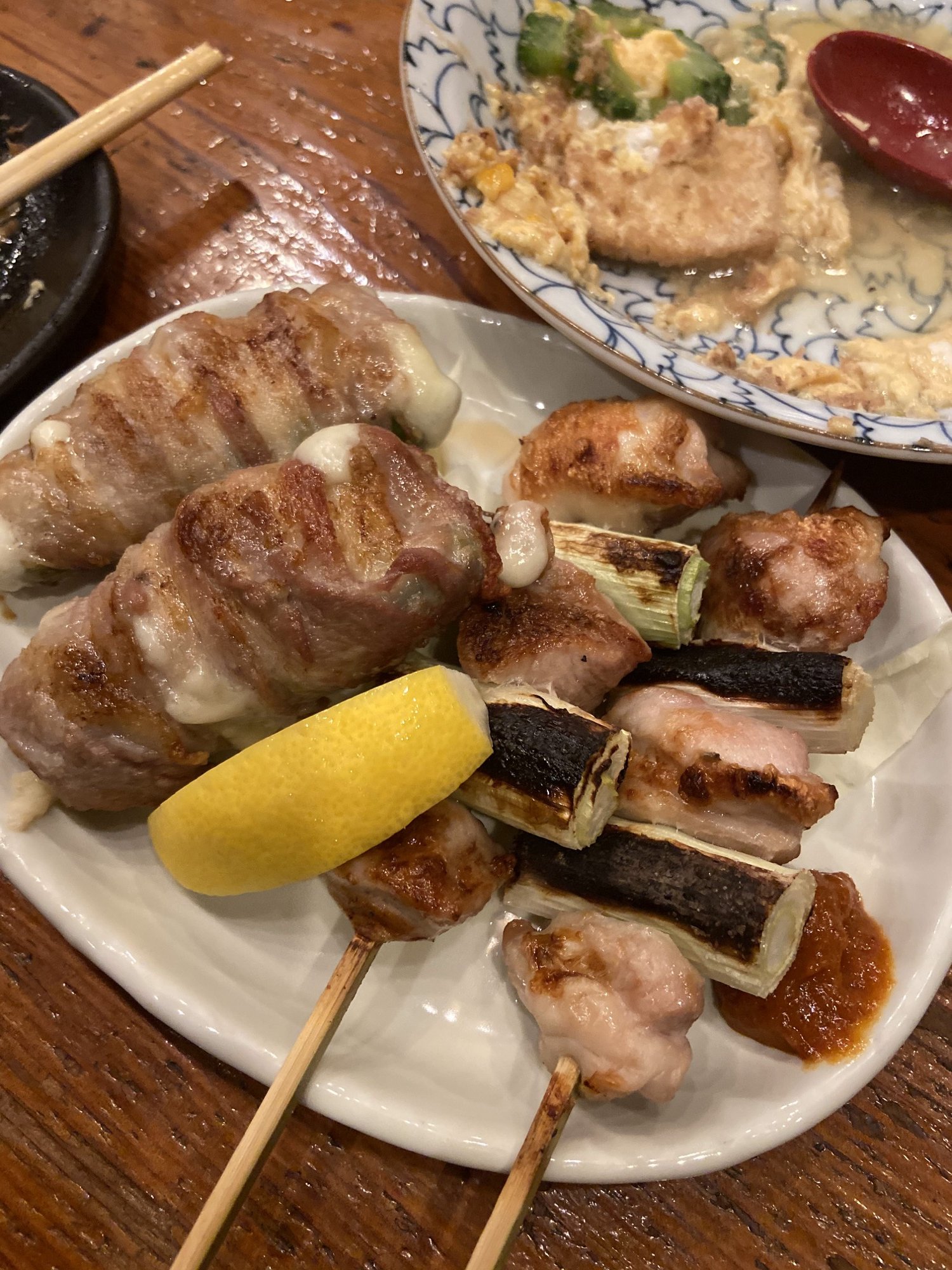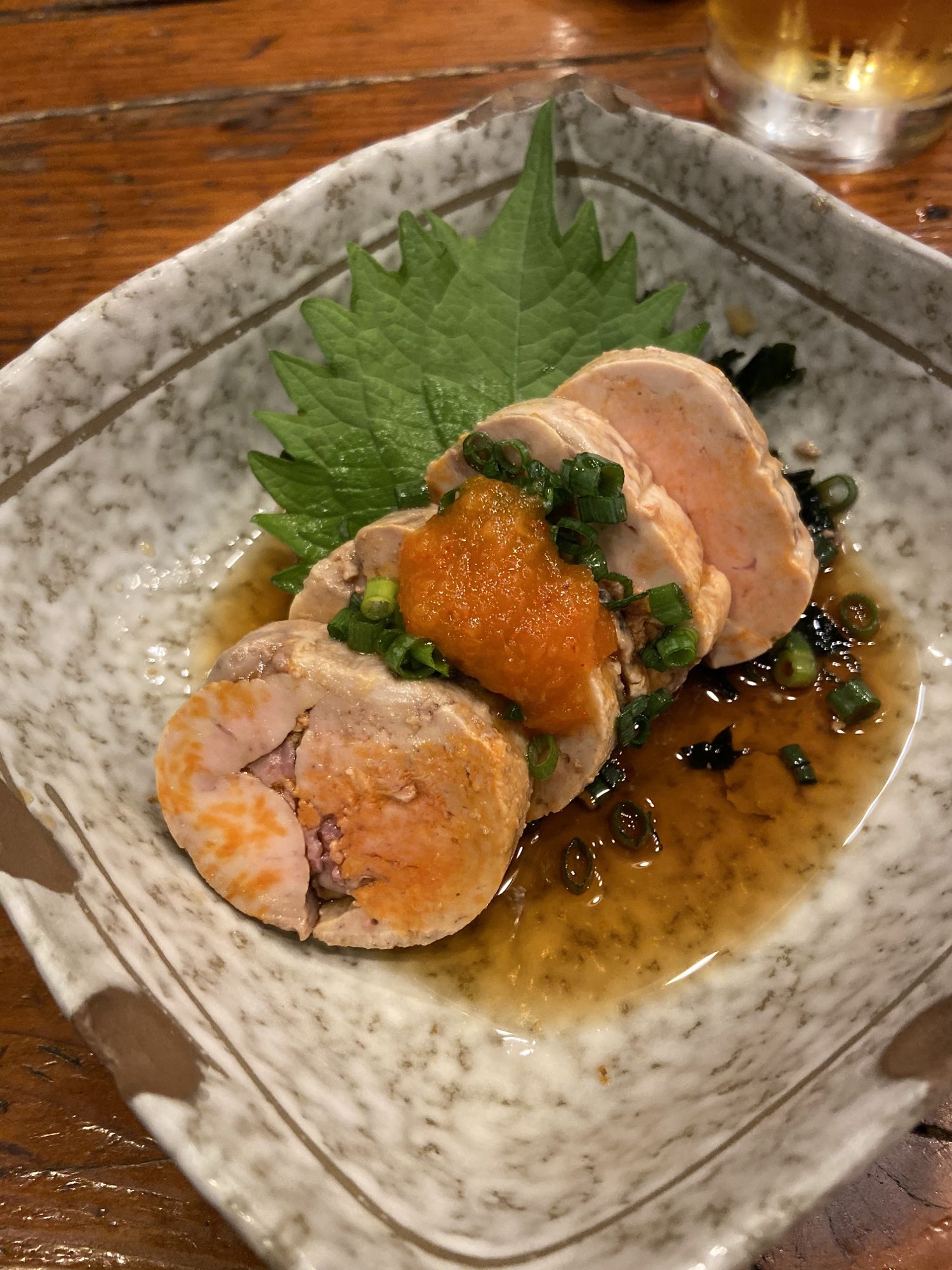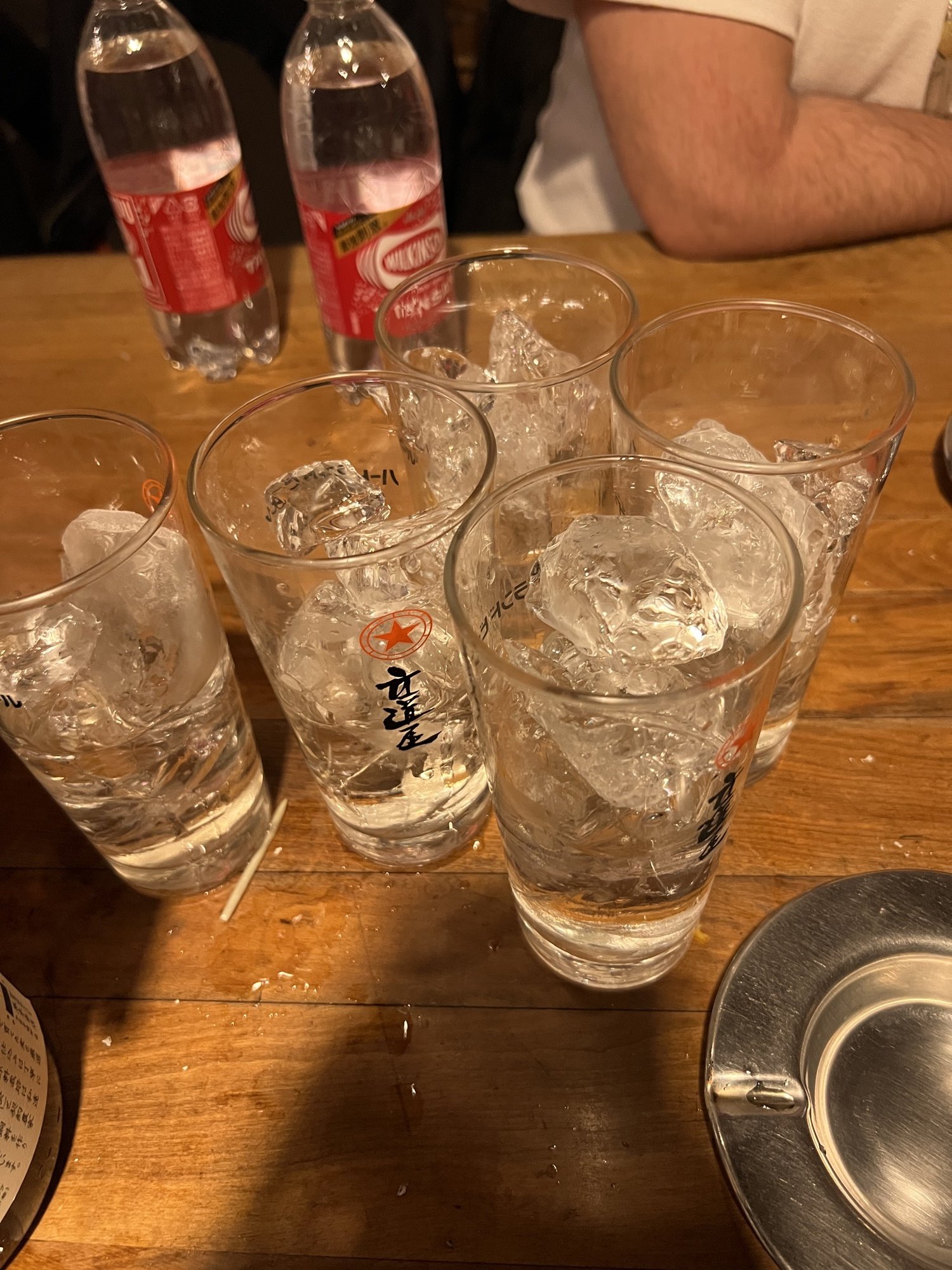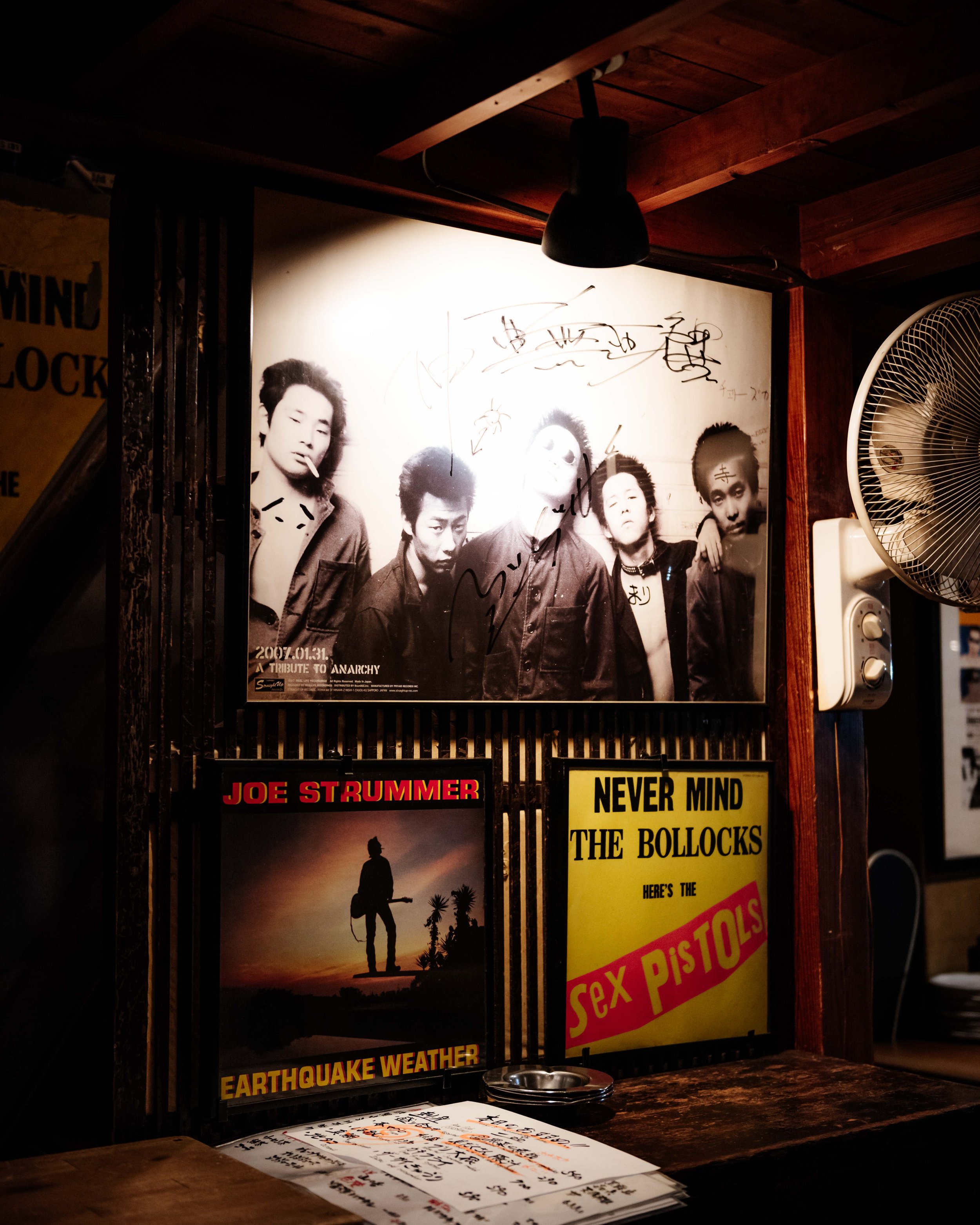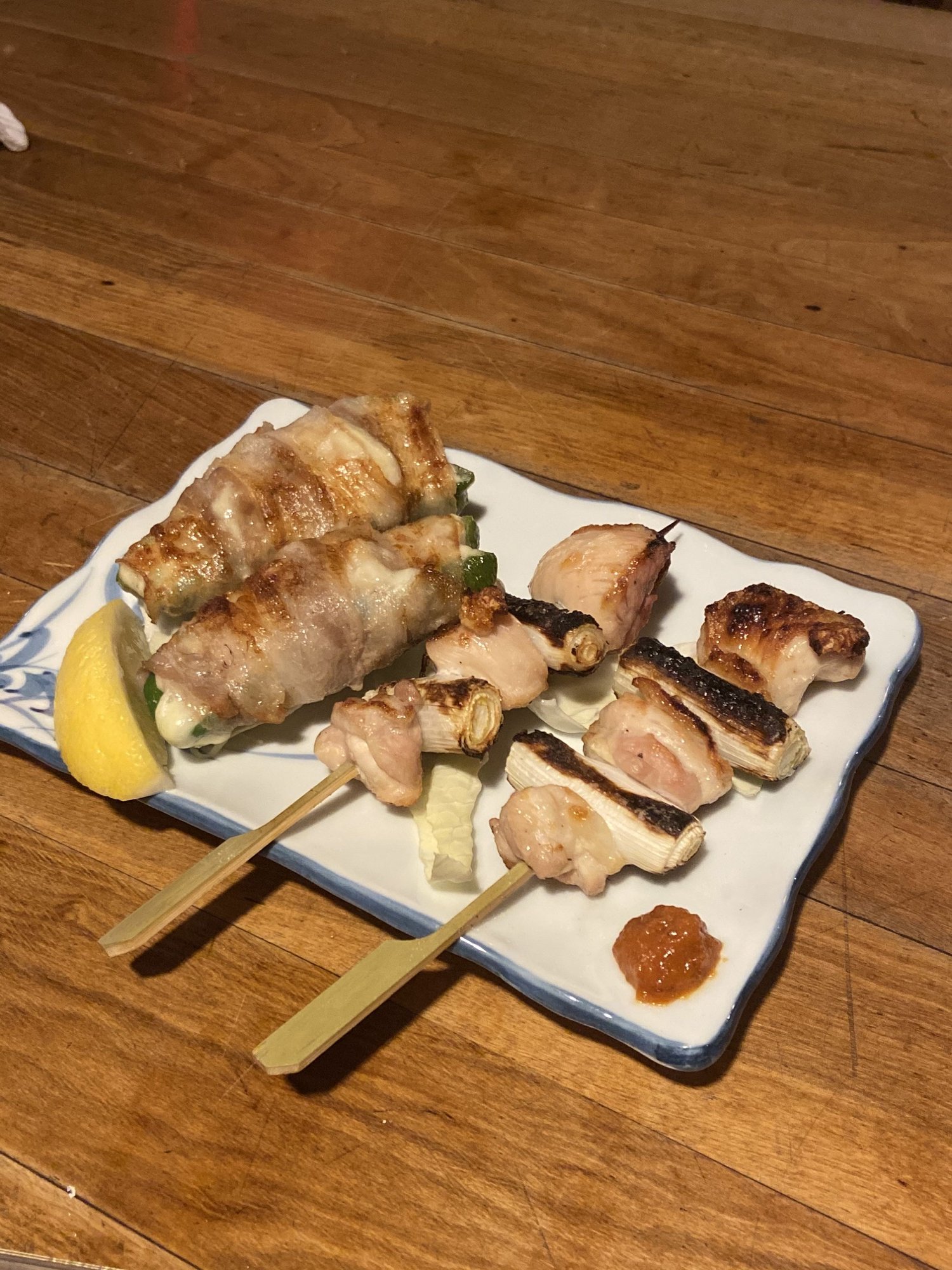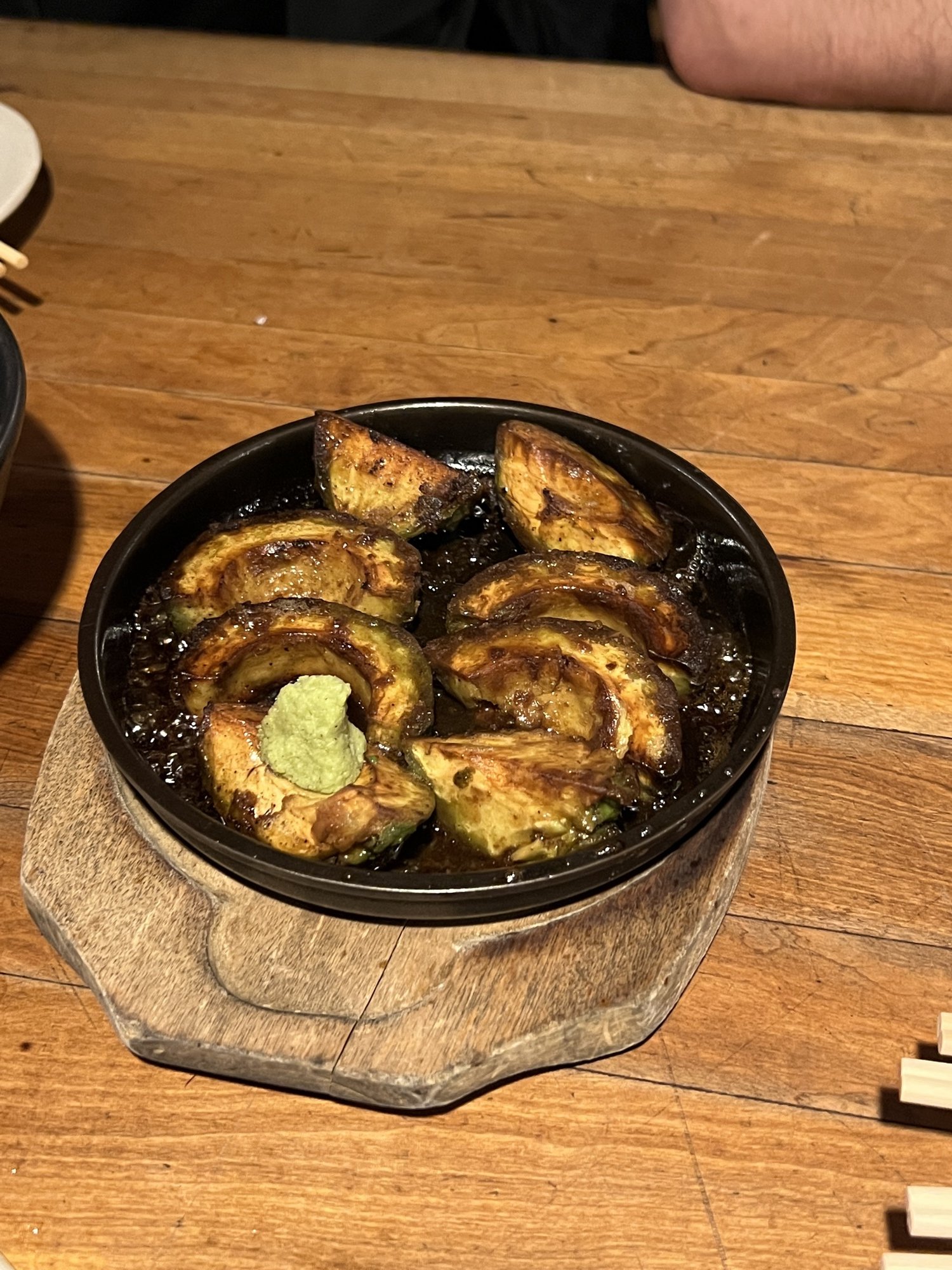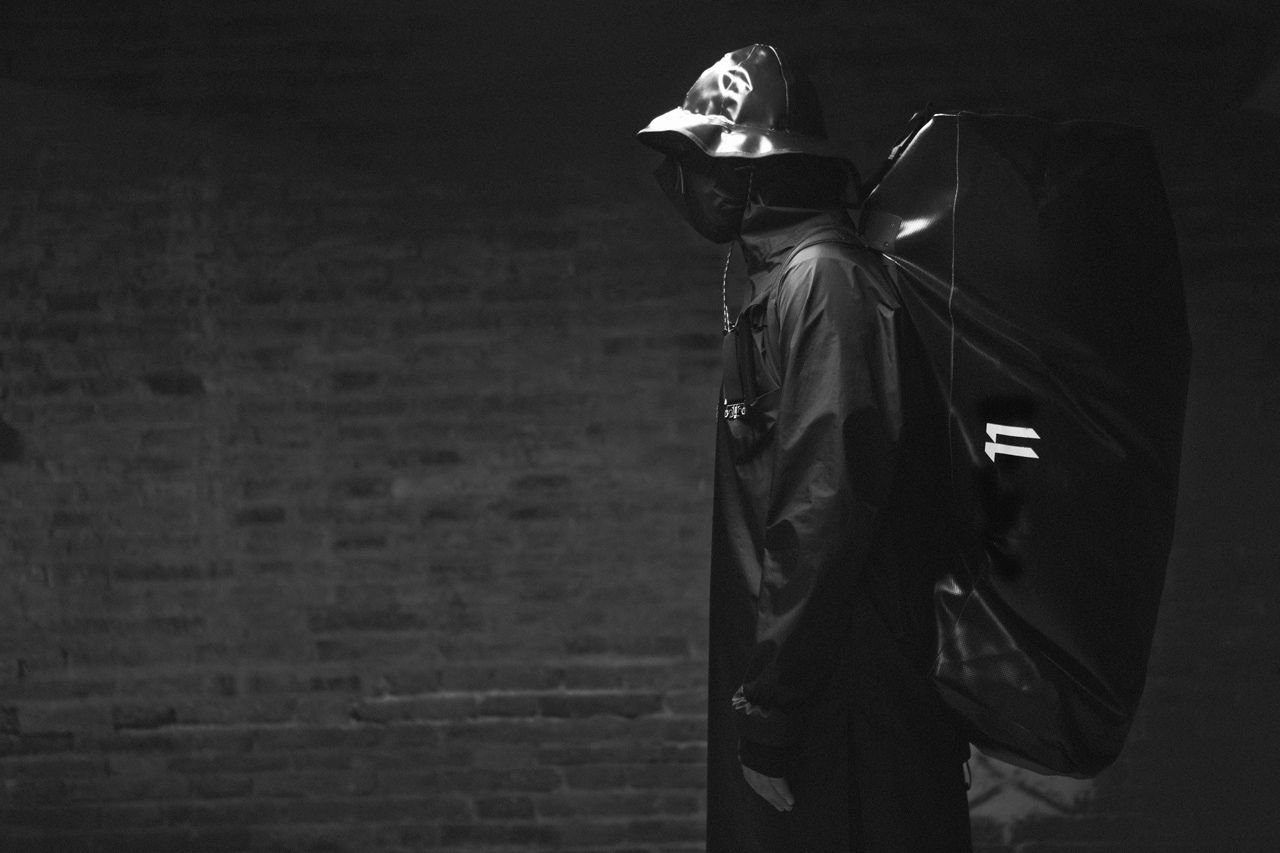The Punk-Rock-Izakaya: Where Culture Meets Food

Japanese food culture is one of the greatest adventures when visiting Tokyo. Trying peculiar ingredients at times unique to the local dishes or just enjoying the countless bars and restaurants the city has to offer. The most common one being, the izakaya.
An izakaya can be a small place run by one family or multiple levels of huge rooms with waiters shouting out orders while serving cold Asahi. There is no specific style that makes a place an izakaya. Yet, it's usually the go-to place for a beer [+more] after a long day, or to spend hours with friends, with reasonably priced food and drinks making it the spot for people of different ages and social backgrounds.
The ultimate place for everyday people and everyone. Each izakaya can have its own style, taste and vibe, but one that stands out from the rest is Tatemichiya.
Standing in Daikanyama, an area of culture for art and fashion, Tatemichiya is the place not only for the foodies but especially for punk-rock lovers. Built on the owner, Yoshiyuki Okada's devotion to his own love for punk rock music, the personally curated playlist not only reflects this, but the space itself embodies the fusion of izakayas and rock.
The staff and environment make it a spot for all, yet look around closer and you will recognize the legendary signatures written on the walls by past customers and some of the most famous rock bands and artists out there.
But punk rock culture isn't about the fame but the passion as we further found in speaking with the owner. Tatemichiya is a place that was founded on the unification of his love for food and punk rock music.
The same way fashion no longer stands alone as musical artists collaborate with brands, the fusion of food and music is also an embodiment of this as we can see at Tatemichiya. Yet, as noted before, this place is not just one for their music selection. The unique but comforting dishes on their menu make most customers become regulars. The sabukaru team is one of the many.
But if you don't believe us, David Zilber the former head of fermentation at Noma, one of the most coveted restaurants in the world, posted Tatemichiya on his Instagram as being his all-time favorite izakaya in Tokyo.
The high-quality dishes that are unique, yet somehow familiar makes Tatemichiya a special izakaya to all.
Get an insight into what led the owner to his passion for music and food, and his punk rock mantras that make Tatemichiya the ultimate punk rock izakaya from our interview with the man himself.
Dear Yoshiyuki-San, can you please introduce yourself and the punk rock izakaya to the Sabukaru Network?
Hi my name is Yoshiyuki Okada and I am the owner of the punk rock izakaya, Tatemichiya. I was born in the countryside in Nagano prefecture. The name Tatemichiya comes from the name of the house I grew up in and this year will be our 20th anniversary since we first opened.
When and where did you start to cook? And did you always work at an Izakaya or also cook at different restaurants?
I started cooking when I was 16 years old as a part-time job. Then I came to Tokyo and worked in the food industry for 13 years. That’s where I really learned the joy of restaurants, though I wasn’t actually a cook for those years.
How would you describe an Izakaya in your own words? What is the feeling and idea behind it?
High-class restaurants are far from everyday life. But an izakaya is an everyday place, it’s a place anyone can go alone, any time, to socialize with other people.
Let's talk about Tatemichiya, let's talk about Punk Rock. Please, tell us the great story behind this great Izakaya?
It’s not much of a story per se. In one of the songs by a musician, I like there’s a line in his lyrics where he says “I’ll do what I want however I want, what’s it to you? Don’t get rattled.” And just like the lyric, when I asked myself “What do you want to do?” I thought it would be fun to work while listening to my favorite rock music at high volume and that’s why I started Tatemichiya.
When did your love for punk rock start, and was there ever a decision needed between punk and food?
I first came in touch with punk-rock when I was 17 when my senpai [mentor] lent me a record of the SEX PISTOLS. Of course, it was also my own impulse that started it too. I bought a Telecaster with the money I made from my part-time job and forced a friend who's never even played the drums into a band and soon we became a trio band. We just kept playing copies of The Crash and The Pistols. Then, I decided “I’m gonna eat with music” and that’s how the country boy ended up in Tokyo. But soon enough I realized how untalented I was and I became full-time at the shop I was working part-time at and decided to be on the listening side of music.
What were the bands that got you into music and were you able to meet some through your Izakaya?
Of course, I still love the Pistols and the Crash but one day I realized that I didn’t know what they were saying because it was in English, and it made me want to understand the meaning behind the lyrics. From there, I started to take interest in Japanese bands and realized the importance of lyrics. That’s when I found the movement, ‘Tokyo Rockers,’ and one of the bands was a band called Friction that really hit me hard.
There’s even a band that still plays today that was at the Tokyo Rockers event called STAR CLUB that comes by Tatemichiya from time to time.
There are a lot of musicians that have come by. I can’t count how many signatures I have but I only ask for them from musicians that I like. Regardless of how famous they are, if I don’t like them I won’t let them sign on the wall. Do as you want, that’s what rock is.
If you compare punk in Japan and the rest of the world, do you see any similarities or differences?
The difference between the foreign and local Japanese punk scene? Now, I don’t think there’s a huge difference. The recent bands both foreign and Japanese, all sound the same to me. Around 1977 both Japanese and foreign music was more real because back then, there were really influential bands like The Pistols, The Ramones, and The Crash.
How would you describe the music, especially the punk rock scene in Tokyo back then and now? And do you still go out and to concerts?
To be honest, I think old bands had more originality. The Tokyo punk scene now, excluding some, isn’t that exciting. I feel like there are few bands that really have blood flowing through them. And recently, considering the times I haven’t been going to any live shows.
There are many legends hanging on your walls and many legendary artists that have signed here. Can you tell us a bit about who visited your restaurant and how they found out about you?
The legends like Patti Smith, Lee Perry, and Mick Jagger were actually brought here by people in the music industry in Japan. But for myself, what really got me excited was when the four original members of a really influential Northern Kyushu band called The Roosters came by. My hands were literally shaking when they came in. Japanese legends like Anarchy, Star Club, Panta, Carmen Maki, Mods, Rockers have also come by. It made me think, so long as I continue loving them they will show up here.
There are certain fashion styles that are associated with certain music scenes. Could you tell us about your own style?
I’d say it’s mostly the same as everyone else. I only buy something unless I really like it.
One store I’m a real fan of is Dry Bones [@drybones_tokyo] in Daikanyama.
I do like the workmen and more so classic styles like suspenders.
Springtime is my favorite, a henry neck shirt with suspenders is my look.
We noticed you also have a lot of iconic movie posters hanging on your walls. Which of these movies is your favorite?
That would be Burst City by Ishii Sogo. I’m a huge fan of the director but this movie is my favorite. I saw it when I was 18 and the cast for the movie was crazy for us because they were all our favorite musicians. The musicians were the actors in the movie. All the punk rock musicians were also big fans of Ishii Sogo. There were even bands that were upset that they weren’t in the movie. The director even used real boso-zoku members in his shoots for his scenes. It’s a very real and high-speed movie.
Where were the iconic spots for people in the punk rock scene at the time to meet up?
My friends and I went to events when we heard artists like Johnny Sanders was coming. Tsubaki House and Loft both in Shinjuku were places to be for anyone who knew punk rock. Tsubaki House doesn’t exist anymore; they were basically evacuated from the building. Loft now moved to Kabuki-Cho, it’s an established spot in the community. But those were our go-to places for live shows and DJs like Onuki Kensho. My focus was on the live shows rather than the partying though. It was all about the music.
What do you think makes your izakaya different from the other ones out there?
I mean, it’s the music, right? As an izakaya, I don’t think we’re much different. But there are not many izakayas that play punk music. Especially with such a biased playlist.
What should visitors of your izakaya not miss out on? What should they drink and eat? Also, what should they not do?
Which dish are you the proudest of? Our favourite is btw the Avocado steak and the Piman Bacon Cheese yakitori!
The answer is the same for these questions. They have to try the Piman [green pepper and cheese], and the avocado steak for the grilled dishes. But the Atsuage and Dashimaki Tamago are both amazing too. And what would I say to new customers? I guess it would be don’t sign on the walls!
How punk does it get now and then at Tatemichiya? What were the wildest nights you remember?
This July is our 20th anniversary! And 10 years ago, we asked Unit, the live house right across the street, to do a 10th-anniversary live show with 4 of my favorite bands, Star Club, Cobra, Rivers and SA. I’m planning one for our 20th too. It’s gonna be a wild night.
Where else do you go in Tokyo to connect with punk culture? Any record stores, shops and bars you like?
I don’t really go anywhere. Tatemichiya is the punk culture. Tatemichiya is punk. So I don’t have much interest in other spots. I’m able to connect with punk culture just by being here at Tatemichiya.
If you would have to set up a perfect playlist of tracks for the Izakaya what artist/tracks have to be in there and why?
The playlist we use now is pretty perfect and it’s hard for me to choose since I have so many absolutes.
But if I were to name some…
STAR CLUB「Power to the punks」
STAR CLUB is a band I’ve been listening to since I was 17. They’re still playing shows and the fact that they have been playing for more than 40 years I think is punk in and of itself. If someone asks me, what is punk?, without hesitation I would answer it’s Hikage, the vocalist of Star Club. He is the embodiment of punk rock.
COBRA 「Oi tonight」
They are an Oi band from the Kansai area. They’re not around anymore but they are the ultimate Oi band of Japan. I don’t think they’ll be another Oi band as sick as them.
SA「song for the loser」
This band is also old but still plays today. Their lyrics really hit your heart and make you feel something. I remember raising my fist while crying when I went to their show.
Do you have any last words for our readers/future visitors?
Our stance at Tatemichiya has been the same for the past twenty years and probably will never change. Some may say that means there’s no progression because of that but I don’t care what anyone else has to say. This is just what I want to do. As the song I quoted says, “I’ll do what I want however I want, what’s it to you? Don’t get rattled. Oh Oh LET IT ROCK.”
Text by Ami Takagi
Interview by Adrian Bianco
Photos by Natsuki Ludwig


